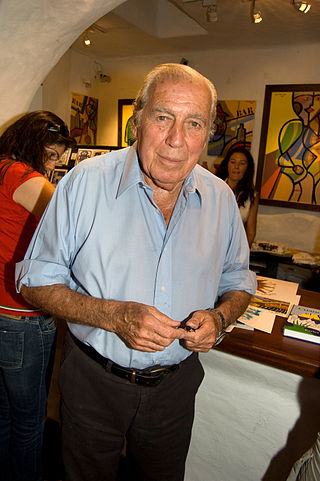Related Research Articles

The culture of Uruguay is diverse since the nation's population is one of multicultural origins. Modern Uruguayan culture is known to be heavily European influenced, mostly by the contribution of its alternating conquerors, Italy, Spain and Portugal, and from the large numbers of immigrants who arrived in the country from the 19th century onwards.

Casapueblo is a building constructed by the Uruguayan artist Carlos Páez Vilaró. It is located in Punta Ballena, 13 kilometres (8 mi) from Punta del Este, Uruguay. Initially, it was the artist's summer home and workshop, and includes a museum, an art gallery, a cafeteria and a hotel in its facilities. It was the permanent residence of its creator, who worked and spent his last days there.

The Legislative Palace of Uruguay is a monumental building, meeting place of the General Assembly of Uruguay, and the seat of the legislative branch of the Uruguayan government. It is located in the Aguada neighborhood of Montevideo.

Carlos Páez Vilaró was a Uruguayan abstract artist, painter, potter, sculptor, muralist, writer, composer and constructor. He took an active role in the search for survivors of the 1972 crash of Uruguayan Air Force Flight 571 in the Andes, as his son Carlos Páez Rodríguez was a passenger.
Vilaró is a surname. Notable people with the surname include:
Agó Páez is a Uruguayan plastic artist. Her work focuses on mandalas and the philosophy that supports them.

Jorge Páez Vilaró was a Uruguayan artist, muralist, and sculptor. Known for his vibrant and eclectic works, Páez Vilaró's art reflected his deep appreciation for Latin American culture, identity, and traditions. As an influential figure in modern Latin American art, he worked across various mediums and left a legacy of public and private artworks that celebrate the richness of regional heritage.